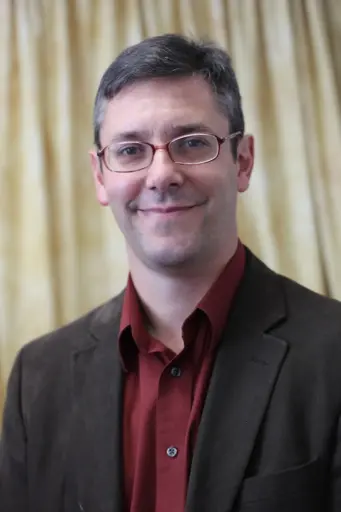The U.S. Department of Energy’s Bioenergy Technologies Office, part of the Office of Energy Efficiency & Renewable Energy, is funding a new $10 million Multi-University Center on Chemical Upcycling of Waste Plastics (CUWP) under the direction of Richard L. Antoine Professor George Huber in the UW-Madison Department of Chemical and Biological Engineering.
 George Huber
George Huber
It’s believed that since 1950 only 9 percent of the plastic waste produced around the world has been recycled. Twelve percent has been incinerated, but 79 percent is still lingering in landfills or breaking down into microplastics in the oceans. Even recycled plastics are often downcycled into less valuable products that also eventually end up in the dump.
That’s because it’s expensive and difficult to recycle plastic using current technologies. The new CUWP hopes to finally close the loop, focusing on several new chemical recycling techniques that could allow waste plastic to be remade into “virgin” plastic, much the same way aluminum cans are endlessly remade into new cans.
The center will focus on two approaches to recycling plastic waste. In thermal depolymerization, the plastic is broken down into a liquid oil which can then be catalyzed to separate out plastic monomers, the main components in new virgin plastic.
CUWP’s other focus is solvent-targeted recovery and precipitation (STRAP) processing, a technique that can be used to process and recycle layered plastic films. The center will also research new waste collection and sorting techniques and will develop new graduate and undergraduate curricula on plastic recycling.
“This is a team effort that brings together many different people with a range of expertise in chemical engineering, mechanical engineering, and chemistry to tackle the grand challenges of developing new technology that more efficiently recycles plastic waste,” Huber says. “We want UW-Madison to become the global leader in plastic recycling.”
Many faculty from UW-Madison’s chemical and biological engineering department will participate in the project. Conway Assistant Professor Reid Van Lehn who will focus on STRAP processing; Baldovin-DaPra Associate Professor Victor Zavala will analyze system economics, the plastics recycling lifecycle and logistics; Paul A. Elfers, James A. Dumesic, and Vilas Distinguished Achievement Professor Manos Mavrikakis will use modeling tools to understand the molecular chemistry occurring in plastic recycling; John and Dorothy Vozza Professor Ive Hermans will help develop new catalysts for conversion of plastic oils into the original monomers; Distinguished Faculty Associate Andrew Greenberg will lead the center’s educational and outreach activities; research professor William Banholzer will serve as chairman of CUWP’s industrial board.
Tim Osswald, Consolidated Papers Foundation Chair sponsored by the Mead Witter Foundation in the Department of Mechanical Engineering will also participate, characterizing different waste plastic streams and analyzing their rheology.
Other participating institutions include Iowa State University, the National Renewable Energy Laboratory, University of Massachusetts-Amherst, University of Virginia, Universidad Autónoma de San Luis Potosí, Universidad Autónoma Metropolitana-Iztapalapam, and the University of Guelph.
Industrial partners include Neenah, Wisconsin-based Amcor, Atando Cabos, EcoStar/Placon, Frontline BioEnergy LLC, Revolution, and SABIC.